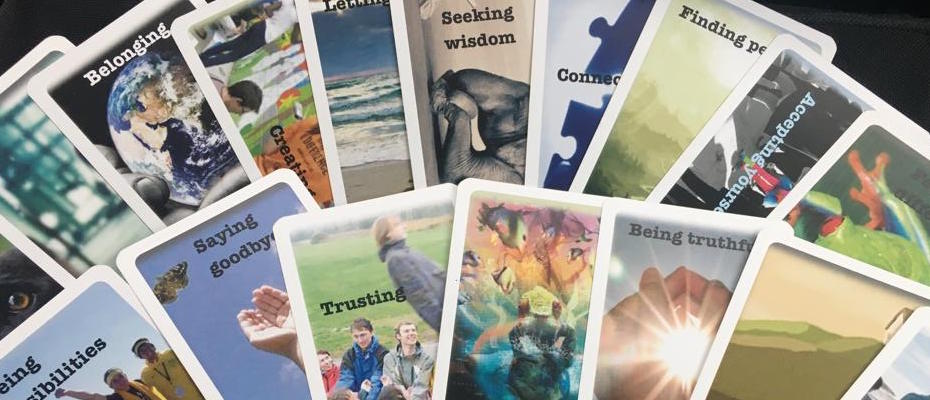‘ACT Conversation Cards are a therapeutic tool for working with values in line with Acceptance and Commitment Therapy’ (Hayes & Ciarrochi, 2015).
The ACT Conversation Cards include 32 ‘value cards’ and 36 ‘question cards’.
I use the ACT Conversation Cards in my work with young people who are secondary age (often attending an Alternative Provision School) to uncover, from their perspective, their core values and how these are demonstrated in their daily life. I use these cards at times when it is not always clear what is motivating to young people and where parents and school staff may be struggling to know how to support them. This method has also supported young people to understand the values that they hold and perhaps consider how their behaviours move towards or away from what they think is important to them.
How I use the ACT Conversation Cards
When I use the cards in my work:
- I often ask the young people to sort the value cards into 3 piles (‘important’, ‘a little important to me’ and ‘not important to me’).
- From here, I ask them to sort the important ones again so that they have the top five most important values in order.
- I consider with them the values that they deemed to be unimportant and why.
- When the young people have prioritised five values, I ask them what each of these mean to them, how they know that they are important and what they do to move towards, rather than away from, each value.
- I ask them how other people see this value in their life and whether there are any shared values amongst friends and family that they choose to discuss.
- I ask the young person to think about something that they ‘would like to do more of’ to move towards living their value, what this looks like and how they and others will know that they are doing so. I ask them who would notice this behaviour and what they would comment on to support them.
I’ve found that this approach is often more successful when the young person is able to talk about their views in relation to the values they select as ‘important’. However, I have also used the cards when the young person has been less verbally communicative as they can engage with the visual sorting task.
Sharing information gained from using the ACT Conversation Cards
With permission from the young people, sharing their responses to this activity with school staff and parents can be useful in promoting discussion about what they can do to support movement towards the values that the young people have deemed important.
I’ve also found that sharing some of this information promotes empathy and connection as people supporting the young person are given an insight into their world. This activity can also be useful to the young person as they may not have considered their motivations and values prior to this; they can be supported to engage in activities and behaviours which resonate with these values.

